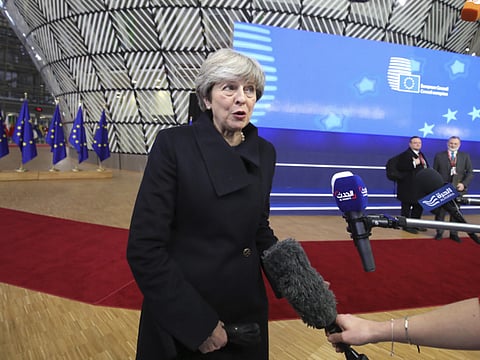A long Brexit transition will only prolong uncertainty
The sense that the UK must choose between Europe and the US has added to the scepticism around the debate

For a parable that perfectly sums up the hopes of “Exit from Brexit” diehard Remainers, it is hard to beat this little piece of homespun wisdom from the 13th-century Persian philosopher, Mullah Nasr Al Deen. Sentenced to death by the sultan, Al Deen begs forgiveness and promises, ridiculously, that given a year’s stay of execution, he could teach the king’s horse to sing. An amused Sultan agreed. Al Deen’s cellmate told him he was a fool, as a horse could never be taught to sing. To which Al Den replied: “A lot of things can happen in a year. The king might die. The horse might die. I might die. And, who knows? Maybe the horse will sing.”
While Remainers play for time, the economy must nonetheless keep chugging along; continued uncertainty over Britain’s future relationship with its nearest neighbours means it is doing so with ever-less enthusiasm. Any article that addresses the economic uncertainties of Brexit must begin by acknowledging that, so far, things have held up remarkably well. Neither consumer spending nor business investment have been notably damaged by the outcome of the referendum, and employment has continued to grow. But all good things come to an end; Brexit euphoria is wearing off, to be replaced by sharp-edged realities.
Any negatives are being partially offset by an export-led revival in manufacturing, supported by the very same devalued pound that is eating into take-home pay. The trouble is that manufacturing is a relatively small part of the UK economy these days. Its present success, moreover, is substantially down to a cyclical recovery from near depression-like conditions in its major export market — Europe.
Worryingly, there is still very little sign of the sustained upturn in business investment to match. Surveys repeatedly show that Brexit uncertainty has damaged investment intentions — not for everyone, but for a significant minority. The great paradox here is that although business and the City have broadly welcomed the idea of a two-year transition after Brexit — in which nothing much will change in the United Kingdom’s trading relationship with the rest of the European Union (EU) — the effect is simply to prolong this state of uncertainty; the immediate cliff edge is removed, but only to be shunted further out into the future. Don’t get me wrong. I’m not seriously advocating that we forgo the transition and opt instead for an immediate hard Brexit on World Trade Organisation’s terms. This could prove too much of a shock for the economy, and the Government, to bear.
Brexit is front and back of virtually every conversation with any top-drawer chief executive these days, as if all other potentially gainful activity has ground to a halt. Many companies are just sitting on their hands, waiting to see how things pan out. While Britain attempts to negotiate its future trading relationship with Europe, all other potential free-trade agreements (FTAs) have to be put on hold. Nobody is going to agree an FTA with the UK until they know just how constraining Britain’s FTA with the EU is likely to be. The one determines the other. In a recent speech to the Confederation of British Industry, Wilbur Ross, the US Commerce Secretary, warned that the closer Britain ended up to Europe, the more problematic its future trading relationship with the US was likely to be. This sense that Britain must choose between Europe and the United States further adds to the pall of uncertainty.
Over it all hangs what international capital regards as an even greater threat: An unashamedly hard Left Government in Downing Street, led by Jeremy Corbyn, someone who says that City bankers are right to fear him because he’s out to get them. Do I really need to be invested in such a country, many overseas investors are asking? Whatever form of Brexit Prime Minister Theresa May eventually negotiates, it may be at the expense of her own government. A further four to five years of economic uncertainty and stagnation is not going to play well at the polls.
— The Telegraph Group Limited, London, 2017
Jeremy Warner is one of Britain’s leading business and economics commentators.


